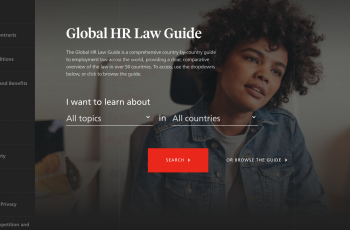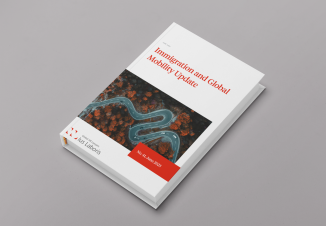
We asked our lawyers in 49 countries if there are questions that the employers cannot ask their candidates. Generally, interviewers should seek to stay relevant and avoid asking questions that are not about the job at hand. The logic is simple: employers should avoid discrimination or bias, as most countries have anti-discrimination laws and, data privacy laws, meaning that questions that are irrelevant to the job may lead to allegations of breach of those laws. Staying strictly relevant helps to ensure that the interview process is fair and equitable.
Some of the most prominent banned questions that our lawyers told us employers should avoid were about:
However, it is always best to check the rules in each country separately, as there may be nuances. For instance, although it is generally not permitted to ask about the candidate’s criminal history in the UK or Belgium unless the job requires it, in some countries, such as Turkey or Mexico, it is generally permissible.
Health is a particularly sensitive issue and one that many candidates will rightly wish to keep to themselves. However, the job at hand may require some exceptions. For example, although questioning the health of a candidate is prohibited in many countries, in cases where the job involves an increased health risk, it may be permitted. For instance, in China, employers are not permitted to ask whether a candidate carries hepatitis B, unless the job is one that cannot be held by someone who carries that disease. In Serbia, health checks are permitted only if the job involves an increased health risk, in which case a prior medical check and confirmation by a competent health institution that the employee is capable of performing the job are necessary. In Sweden, although employers should not ask questions about a job applicant’s health, a job offer can be made conditional on a satisfactory health check if this is relevant for the role. In Mexico, asking about health is permitted and health checks may even be performed to avoid contagious diseases spreading in the workplace.
Another issue is whether an employer can ask about a candidate’s previous salary, the idea being that prohibiting this question could help break the cycle of pay gap discrimination. In United States, a number of states (including California, Massachusetts and Oregon) and cities (e.g. New York and Philadelphia) have passed laws prohibiting or limiting inquiries by employers into what individuals were paid in their previous jobs. The EU has something similar in mind with proposal for a directive in the pipeline to deal with gender pay gap issues. Once passed and implemented, employers would not be able to ask candidates about their pay history in any of the 27 countries in the bloc.
Aside from potential reputational damage and the unnecessary loss of good candidates, if discrimination can be proved, or if laws related to privacy are breached, sanctions may be imposed. For example, in South Korea, asking and collecting information unrelated to the legitimate requirements of the job may result in an administrative fine of KRW 3,000,000 for first-time violators, KRW 4,000,000 for second-time violators, and KRW 5,000,000 for repeat violators (approximately EUR 3,000). In Croatia, the employer could be charged with a misdemeanour punishable by a fine of up to HRK 60,000 (approximately EUR 7,900).
And should candidates answer if they are asked off-the-limits questions? What if they just lie? We see that in Croatia, if an employer asks a question that is not directly linked to the job, the applicant is not required to respond. In Germany and Greece, if employers ask a question that goes beyond their right to that information, the employee has the right to lie and is entitled not to experience negative consequences from doing so. The employer must not decline to offer the person a job based on the lie or terminate the contract if the lie were only discovered later, during the course of the employment.
Overall, employers should ensure that interviewers are aware of the potential pitfalls, particularly in terms keeping relevant, avoiding overly-personal questions and understanding what kind of questions are likely to amount to discrimination.
Discover our survey results, country by country:
For more information about recruitment



